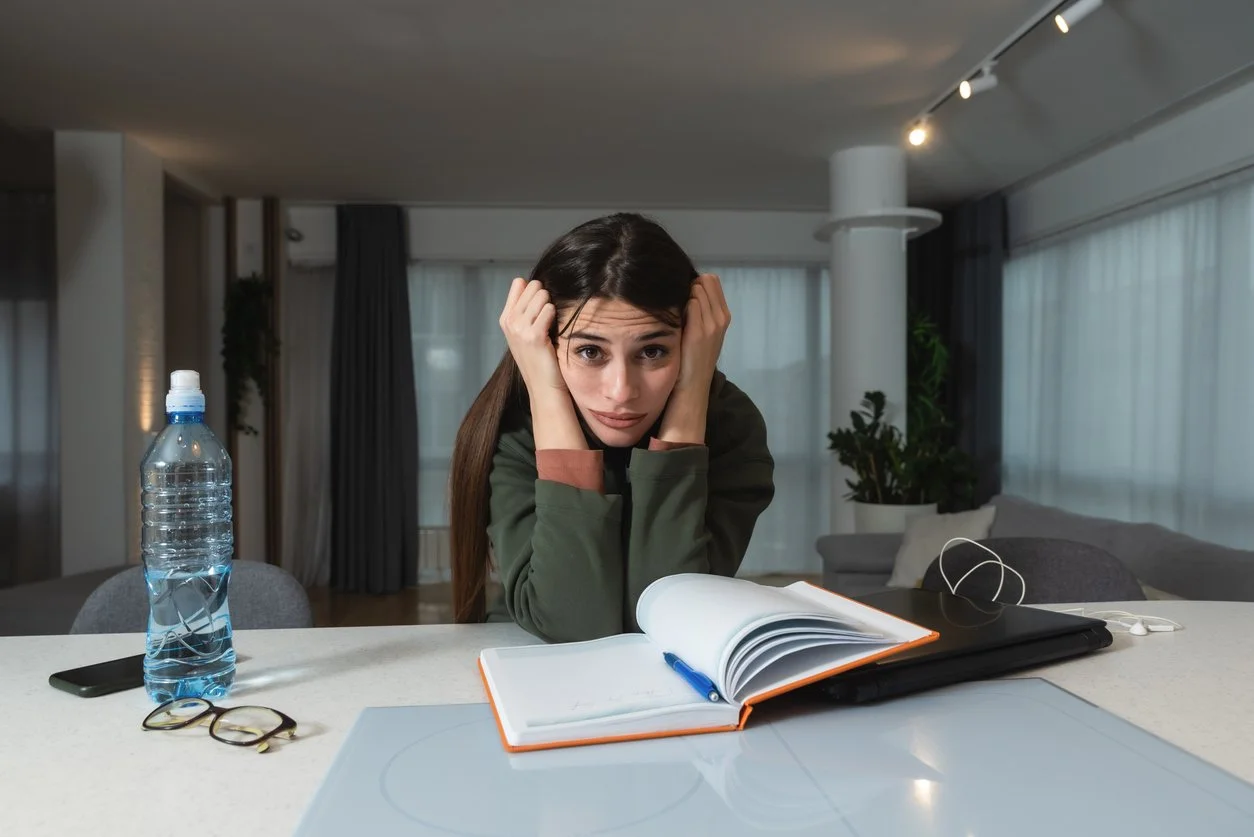The terms ADD (attention deficit disorder) and ADHD (attention-deficit/hyperactivity disorder) often get thrown around interchangeably, demonstrating widespread confusion about these two terms. The official medical terminology changed decades ago, yet many people have not registered the difference.
Read MoreDivorce rates have been on the rise, with first marriages falling somewhere between 40% and 50%. Yet the idea of divorce still tends to be a surprise factor and one of the most emotionally draining experiences.
Read MoreAnxiety is somewhat of a silent epidemic that affects millions of people across the world. It’s a normal part of life in minimal doses, giving us the ability to respond when there’s perceived danger.
It’s when anxiety ramps up and manifests as persistent worry, fear, and physical disruptions that it becomes problematic. Medication is always an option for managing anxiety, but many non-medication alternatives have been proven to be equally effective.
Being able to implement alternative methods allows you to build long-term resilience and move toward improvements in quality of life. Here are 6 ways to naturally improve anxious symptoms.
Read MoreSleep is one of the most basic functions that we do each day. It’s necessary for our mind and body health but often gets pushed off when our schedules get busy.
Unfortunately, even one night of lost sleep can have detrimental impacts on our functioning and mental health. You may not notice the effects immediately, but that doesn’t mean they aren’t there. This connection goes pretty deep.
Here’s a look at why sleep is so vital to your overall mental health.
Read MoreAnxiety is a common occurrence for many people. It can cause a separation of your mind and body, leading to feelings of internal struggle and chaos.
While there are conventional options for treatment, more and more people are turning to natural alternatives to soothe their nervous systems. Here, we’ll explore six ways to manage your anxiety naturally.
Read MoreAs humans, we have a natural desire for human connection and social interaction with others. In fact, without it, we risk harming our physical, emotional, and mental health.
With that said, socializing doesn’t come naturally or without some element of struggle for everyone. Social batteries can become drained. Certain situations can be triggering. Circumstances can make different engagements feel uncomfortable and overwhelming.
Social anxiety can manifest in several different ways. You may find yourself panicking in large crowds or when you attend functions or group gatherings. You may feel jitters or perspiration when giving a presentation in front of a group. Meeting new people and making small talk in those settings can feel stressful.
As with any other anxiety type, there isn’t just one cause for social anxiety. Here, we’ll discuss some of the more common root causes impacting social anxiety.
Read MoreAnxiety can make day-to-day functions a struggle for people who suffer from it. Social activities can be difficult, reading social signs or conforming to social norms is harder, and controlling your thought processes may feel impossible.
Memory is one thing that can be affected by anxiety. Recent studies have shown that people who demonstrate anxious behaviors are also more likely to falsify memories. How does anxiety correlate with false memories?
Read MoreStressful situations, whether in your personal or work life, tend to be met with a stress response. Anxiety makes you feel on edge and can negatively impact your ability to do day-to-day functions.
High-functioning anxiety looks a little different and may be less noticeable to the outside world. Even those who experience it may not be aware of it themselves.
Read MoreFor starters, congratulations! You have taken a step forward onto new and exciting adventures! You should be so proud and hopefully celebrating the next chapter in your life.
No matter how great of an opportunity it is, and maybe due in part because of the opportunity, it is likely you have the new-job jitters. Change and new opportunities can be intimidating.
Read MoreAdulting is hard! Read that one more time. Adulting is hard. When children transition to young adults, many of the comforts and supports that are so familiar begin to disappear. The expectation of being independent can be overwhelming in today’s world. There is no shame in saying that being a grown-up can be scary sometimes.
What should seem like an exciting time is often viewed with nervousness, uncertainty, and fear. Half of all mental illnesses begin by age 14. Roughly 30% of young adults struggle with a mental health disorder. Around 40% go untreated. Anxiety about being a grown-up isn’t as uncommon as it may seem. Times have changed, and with that evolution came more stressors and pressures.
Read MoreAnxiety is a mental health condition where you experience persistent worries daily. It seems like these worries are never-ending, where they interfere with your day and even your sleep. But have you experienced physical manifestations as a result of your anxiety? This is when your anxiety is no longer just mental but tells yourself and everyone else you know when you are anxious.
You may experience tics like a spasm in your arms, eyes, legs, or throat muscle when you are anxious. It could be a few days before these symptoms disappear. This is merely your body going into survival mode when you feel threatened. These anxiety tics can be hard to hide from others. If others point them out or you notice these tics, it is important to go into treatment for anxiety to gain more control over your life.
Read Moreif you’re unable to adapt quickly, it can often lead to feelings of exhaustion, confusion, lack of motivation, decreased performance, and overall, just feeling completely burnt out. When you’re feeling too exhausted to adjust, how are you supposed to find the time and energy to actually overcome personal change fatigue and move forward?
Read MoreResigning is a huge decision. It’s helpful to give it lots of time and consideration before you resign. However, if the deed is done and you’re regretting the decision, there are some things you can do to help ease your anxiety.
Read MoreAre you are living in fear right now? Is there any way to change your thought process, and stop feeding anxiety with negative thoughts and unhelpful behavior? Yes! You can feel better, learn to live with uncertainty and overcome debilitating fear.
Read MorePleasing friends and family can become an addiction. Chronic pleasers neglect their personal needs and wants. The result? The loss of respect from those you were trying to please in the first place. You don’t have to go on this way.
Read MoreWhen you overthink, you may believe that you are solving problems. In reality, your mind is just producing new problems to ponder. Overthinking can be a real struggle if your thoughts get in the way of living your life. Anxiety treatment can make a helpful difference.
Read MoreYour own family may include a mix of those who want to get vaccinated, those who do not, and those who have concerns. What do you do when you have decided to get vaccinated, but members of your family remain undecided or refuse?
Read MoreFor some, summer isn’t necessarily a carefree, relaxing time. In fact, if you’ve experienced increased anxiety during the summer, you’re not alone. This is counterintuitive to how we typically think of summer. However, there are a number of reasons your anxiety can increase.
Read More




















